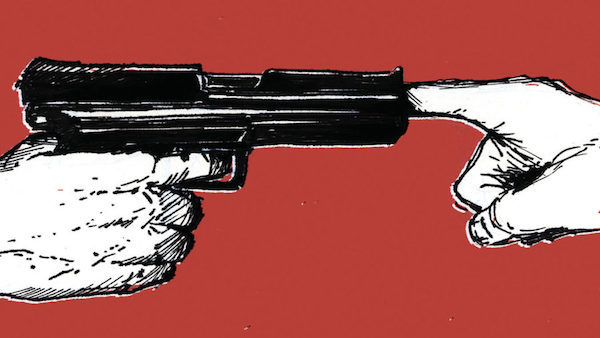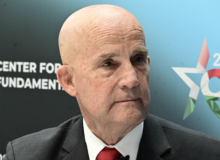Note: For several weeks before last week’s horrific shooting of Steve Scalise and others, the Rt. Rev. Duncan Gray III and I had been trying to place in a prestige journal an overlong essay on the desperate need for civility to return to the public square. After the shooting, National Review Online agreed to run a slimmed down version. Its first paragraphs are here:
In the wake of the horrific shooting of House Majority Whip Steve Scalise and others, people all over the country are asking, How can we excite people to be prudent? Can someone issue a clarion call for calm? Is it possible to rouse people for restraint? Somehow, mores of reasonable public discourse and behavior must be reinvigorated, because what once was called “civil society” is now full of rampant incivility. Cable-news outlets believe shout-fests attract viewers; Twitter encourages people to spout off before self-filtering their worst impulses. Politicians across the spectrum smear opponents with apparent impunity. Peaceful rallies give way to “occupations,” and protests turn into riots.
We worry that these trends might fray our nation’s social fabric to the ripping point. One of us has been a Reagan-conservative activist and writer for 40 years. The other is a retired Episcopal bishop loosely categorizable as a Hubert Humphrey liberal. Together, we fear that friendly and constructive conversations of the sort we have enjoyed with each other for 37 years — some, but relatively few of them, being overtly political — are becoming a seriously endangered species in today’s America. What, pray tell, can be done about it? How can intemperance be made unpopular, rather than exciting? How can mutual respect be rewarded? We offer no sweeping, programmatic solution, no ten-point plan or magic elixir. What we offer is attitudinal, aspirational, and conversational. It also is very practical. Mutual respect works. It produces better results. …
[Please read more here. It may be the most important thing I have ever written, in terms of subject matter.]

Note: To cut it down to a manageable size for NRO, we had to cut about 600 words. Among them were two paragraphs I want to re-include here, below:
Regardless of the issue involved, there is every good reason for mutual respect, a moderate demeanor and attitude, and prudence in temperament and methods, even when dealing with those of sharply divergent philosophies. There was a time, before comedian Dana Carvey and the elder President Bush made it a punch line, when “prudence” was seen as a conservative virtue. As modern conservatism’s intellectual godfather Russell Kirk wrote in his final book, The Politics of Prudence, Americans should “set their faces against political fanaticism,” against strict ideology, and against the idea of “politics as a revolutionary instrument for transforming society and even transforming human nature.”
And the great Soviet dissident Aleksandr Solzhenitsyn repeatedly counseled self-discipline. “If we do not wish to be ruled by a coercive authority, then each of us must rein himself in,” he wrote. And, in another speech: “He who truly understands freedom is not the man who hurries to exploit his legal rights for mercenary advantage, but one who has a conscience to constrain him even in the face of legal justification…. [We must learn to act] in voluntary self-restraint and in full consciousness of responsibility.”….
— Quin
PS I thank Duncan Gray for joining with me in this essay.






